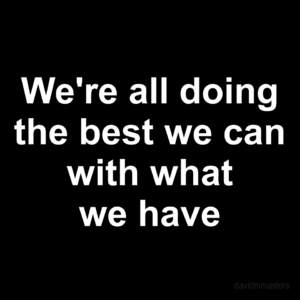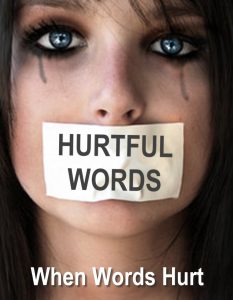If you love or care for anyone with whom you share a relationship with, there is a good chance that the day will come when you will be disregarded or disrespected, and you’re your feelings get hurt. What can you do when someone you love disrespects you? In other less important or significant relationships Its not that big of a deal, but when it comes from someone who is important to you, it cuts you deeply and the incident causes separation from the person you care about.
Here are 7 steps you can take when someone you love disrespects you.
1. Be Calm
Your initial reaction may be to defend yourself by raising your voice or barking at your friend. Take the high road and try to not react in any way that would make the situation any worse. You are not giving up or giving in, you are just not making anything worse than it is when you are caught up in the moment of your internal pain which is associated with this event. Unless the person has literally stabbed you with a knife (even though it may feel like that) there is no reason to respond in the heat of the moment.
2. No Words
Do not let words escape your lips that would set this tragic event in stone or exasperate the situation, escalating it or making it worse. Refrain from striking back and remain calm (or as my grandma would say, “bite your lip”). Any response will only give the person you care about ammunition for waging a war, and if you participate, you might say something you will regret later. If you must speak, be respectful, direct, and unconfrontational.
3. No Outbursts
Your partner might react to your silence as offensive instead of taking the time to reflect. Do not respond, except to be as respectful as you can, and do not accuse or raise your voice. Any shouting match will be a failure on your part. Keep your wits about you.
4. Leave
Put some space between yourself and the offender. The separation has already taken place at the moment the disrespect was initiated, honor the separation, and use it as your cue to just walk away. This space will give you time to calm and center yourself and give you the emotional wherewithal to review the crime and the motivation of the criminal who would dare to hurt someone who cares deeply about him or her. Depending on who the offender is, there is a chance that he or she is also using this time to reflect on the situation.
5. Reflect
Take this time of separation to look inside and ask yourself, “Is there any hidden truth in this transgression?” Maybe there is something underneath the disrespect of value that you could use to become a better person, which you could sort out if you could review the scenario free from a heightened emotional state.
If you do find some hidden treasure in the event, it will come in handy when you,
6. Talk About It
Do not suppress your feelings. You have an obligation to yourself and in an effort to increase the opportunity for this relationship to grow by speaking your truth, and sharing the details about how this has made you feel in a calm environment after some time has passed.
How much time? There is no hard and fast rule about how much time, it could be anywhere from five minutes to a week, whatever works out best for you but do not forget to talk about it. This is key to your own self-respect and your respect for the relationship as well.
If the person you care so deeply about is aggressive (confrontational) or passive-aggressive (refuses to talk about it) then write it out in a letter.
7. Forgive
People do the darndest things for the most interesting reasons, and they do so out of reactions to who knows what kind of things that happened in their past, and it is often likely that even they are unaware of any demons they have hidden away that show themselves at the most inopportune times.
If they express remorse over the disrespect and may even feel apologetic, there is hope that they relationship could continue to grow. If the person you care so deeply about is a toxic person, and these events occur more often than not, you may need to consider cutting back or severing the relationship for your own protection. You never need to subject yourself to abuse, you can stop it whenever you can.
But always forgive. Realize that your friend or partner is only doing the best he or she can. The same goes for you. Allow the people in your life to be who they are. Forgive them when they hurt you because they don’t know any other way to do it. Send them love and send them on their way with your blessings.
If you will be working on continuing and potentially deepening this relationship, and you have forgiven them, do not use this offense as ammunition in the future.
The good news is, if you establish this respect for forgiveness in your relationship, it goes both ways, for which of us is without any weakness, the potential for making mistakes, or reacting inappropriately?







